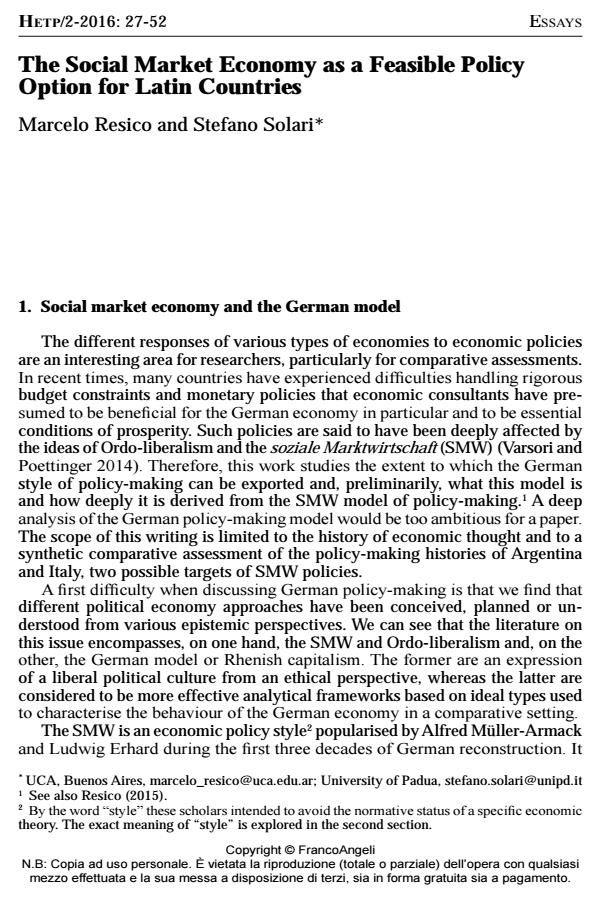The Social Market Economy as a Feasible Policy Option for Latin Countries
Titolo Rivista HISTORY OF ECONOMIC THOUGHT AND POLICY
Autori/Curatori Marcelo Resico, Stefano Solari
Anno di pubblicazione 2016 Fascicolo 2016/2
Lingua Inglese Numero pagine 26 P. 27-52 Dimensione file 279 KB
DOI 10.3280/SPE2016-002002
Il DOI è il codice a barre della proprietà intellettuale: per saperne di più
clicca qui
Qui sotto puoi vedere in anteprima la prima pagina di questo articolo.
Se questo articolo ti interessa, lo puoi acquistare (e scaricare in formato pdf) seguendo le facili indicazioni per acquistare il download credit. Acquista Download Credits per scaricare questo Articolo in formato PDF

FrancoAngeli è membro della Publishers International Linking Association, Inc (PILA), associazione indipendente e non profit per facilitare (attraverso i servizi tecnologici implementati da CrossRef.org) l’accesso degli studiosi ai contenuti digitali nelle pubblicazioni professionali e scientifiche.
The growth model of the German economy draws its guiding theoretical principles from the soziale Marktwirtschaft (SMW) and the seminal work of the German economist Alfred Müller-Armack. The first part of this paper discusses the precise characteristics of German neoliberal theories and the SMW in particular. The second part explores the policy history of Argentina and Italy and the exportability of the SMW to such Latin countries. The relation between countries’ economic structure and the reforms needed to achieve such an economic order is analysed.
Parole chiave:Social Market Economy; Policy-making; Argentina; Italy
Jel codes:B29; P16; P52; E61
- Stateless Money and State Power: Europe as ordoliberal Ordnungsgefüge Werner Bonefeld, in HISTORY OF ECONOMIC THOUGHT AND POLICY 1/2018 pp.5
DOI: 10.3280/SPE2018-001001
Marcelo Resico, Stefano Solari, The Social Market Economy as a Feasible Policy Option for Latin Countries in "HISTORY OF ECONOMIC THOUGHT AND POLICY" 2/2016, pp 27-52, DOI: 10.3280/SPE2016-002002